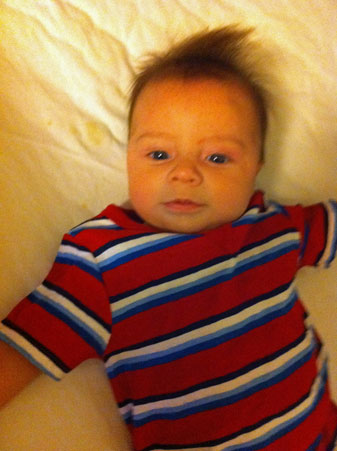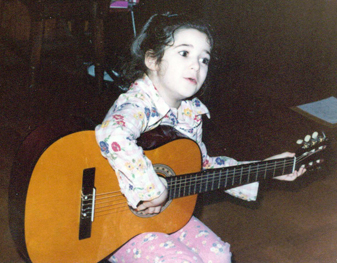Continuing my tour through the formative books of my youth, today I’ll talk about the prose writers who guided my middle school and high school years.
Some of these choices may raise some hackles. They certainly did for my teachers. I won’t defend, as an ideal, the horror of weakness that characterizes both Rand and Nietzsche. I didn’t take it uncritically even then. But I also didn’t feel that adults had a lot of credibility to criticize my attempt at psychological survival, if they weren’t going to protect me from the bullying and ostracism that I endured pretty much non-stop from 1st through 10th grade. Smart, lonely, funny-looking teenage girls love Ayn Rand for the same reason that small children are obsessed with superheroes and dinosaurs. Adults who are gratified by innocence, but don’t want to bear the burden of having it themselves, sentimentalize the helplessness of children. But we just want to get out.
Yes, I was mad, and so was my hair.
Jane Eyre, by Charlotte Bronte
My mother read this to me, and I think I’d read it again on my own by the time I was 11 or 12, and at least twice thereafter, most recently this year. Everything I believe about the dignity of the human soul, the importance of speaking truth to power, and the equality of all people before God, is all in there. Jane is the anti-Dickens heroine. Chaste and modest, but fiercely self-possessed, she doesn’t suffer in silence in hopes of melting the abuser’s heart. She survives because she knows she deserves to, and she would rather brave the world on her own than be dependent on someone who doesn’t respect her. Hooray, Jane!
****
The Collected Dorothy Parker
I remember two things that terrified me in the summer of 1983: the sudden appearance of cellulite on my thighs, signaling my transformation from a pretty little girl to a flabby, awkward adolescent, and Parker’s story “Big Blonde”. The protagonist plays the role of the pretty, lively, “good sport” girl who never imposes her feelings on others, because that’s how she needs to be to catch a husband. Once she gets one, she feels she can relax and have her true feelings, and so she cries all the time. This alienates her lumpish spouse, who leaves her. By then she is no longer young and pretty, so she cries some more and becomes an alcoholic, unsuccessfully attempts suicide and has to pretend to the nurses (once again playing the good sport) that she feels lucky to be alive. I have always lived in dread of becoming this woman. Though drink holds no appeal, I come from a long line of women who drowned in their own tears. I’m only now beginning to unravel the false beliefs that make me afraid of my emotions.
****
The Fountainhead, by Ayn Rand
You know who else was afraid of emotions and hated being a girl? Ayn Rand! But through rational introspection and artistic excellence, you too can grow up to have hot sex with the guy who fixes your fireplace! Actually that part of the book did nothing for me. The two lessons I took away from Rand’s novel, which were the beginning of my adult strength, were these: (1) It is possible to live mindfully and responsibly, by knowing your values and comparing them to your actions, rather than being at the mercy of unexamined emotions and heedlessly hurting yourself and others. (Since none of the real adults in my life modeled this for me, I had to learn it from a book.) (2) Sometimes people hate you for your strengths, not your weaknesses. You don’t have to internalize their contempt.
****
The Valley of Horses, by Jean M. Auel
Conversation, when I was 11, went something like this:
“Mom, I just read this book and I have a weird tingly feeling.”
“That’s sexual arousal.”
“Oh, so that’s what that feels like! What do I do about it?”
“You can masturbate.”
Seriously, my mom was that cool.
****
Dawn of Day, by Friedrich Nietzsche
Again, I didn’t have much interest in the “Ubermenschen” aspects of Nietzsche’s thought that became disreputable because the Nazis claimed him as an influence. Like Rand, he championed the prophetic, creative, innovative individual against the jealousy of the herd. I also valued his critique of asceticism as a psychological splitting mechanism, where a person denied certain aspects of his life force (e.g. sexuality, aggression, unconscious wishes) and pushed them off onto a scapegoat. My favorite quote from him went something like this: “In every ascetic morality, man worships one part of himself as God and demonizes the rest.”
****
The Book of the Dun Cow, by Walter Wangerin Jr.
And just to counter-program all the others, this Christian allegory of Jesus as a goofy, despised barnyard dog! Wangerin’s storytelling gave me my first personal experience of God’s love in a Christian context.


